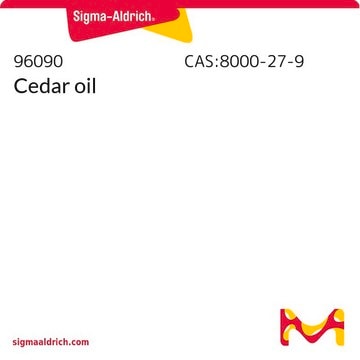W284106
2,3-Pentanedione
≥96%, FCC, FG
Synonym(s):
Acetylpropionyl
About This Item
Recommended Products
biological source
synthetic
Quality Level
grade
FG
Fragrance grade
Halal
Kosher
Agency
follows IFRA guidelines
meets purity specifications of JECFA
reg. compliance
EU Regulation 1223/2009
EU Regulation 1334/2008 & 178/2002
FCC
FDA 21 CFR 172.515
Assay
≥96%
refractive index
n20/D 1.404 (lit.)
bp
110-112 °C (lit.)
mp
−52 °C (lit.)
density
0.957 g/mL at 25 °C (lit.)
application(s)
flavors and fragrances
Documentation
see Safety & Documentation for available documents
food allergen
no known allergens
fragrance allergen
no known allergens
Organoleptic
caramel; cheese; creamy; buttery; sweet
storage temp.
2-8°C
SMILES string
CCC(=O)C(C)=O
InChI
1S/C5H8O2/c1-3-5(7)4(2)6/h3H2,1-2H3
InChI key
TZMFJUDUGYTVRY-UHFFFAOYSA-N
Looking for similar products? Visit Product Comparison Guide
Application
- Changes in physicochemical properties and microbial community succession during leaf stacking fermentation.: This research investigates the changes in physicochemical properties and microbial communities during leaf fermentation, with a focus on the role of volatile compounds like 2,3-pentanedione. The study provides insights into fermentation processes and microbial interactions (Zhang et al., 2023).
Biochem/physiol Actions
Other Notes
Legal Information
Signal Word
Danger
Hazard Statements
Precautionary Statements
Hazard Classifications
Flam. Liq. 2 - Skin Sens. 1B - STOT RE 2
Storage Class Code
3 - Flammable liquids
WGK
WGK 1
Flash Point(F)
66.2 °F - closed cup
Flash Point(C)
19 °C - closed cup
Personal Protective Equipment
Certificates of Analysis (COA)
Search for Certificates of Analysis (COA) by entering the products Lot/Batch Number. Lot and Batch Numbers can be found on a product’s label following the words ‘Lot’ or ‘Batch’.
Already Own This Product?
Find documentation for the products that you have recently purchased in the Document Library.
Customers Also Viewed
Our team of scientists has experience in all areas of research including Life Science, Material Science, Chemical Synthesis, Chromatography, Analytical and many others.
Contact Technical Service
















